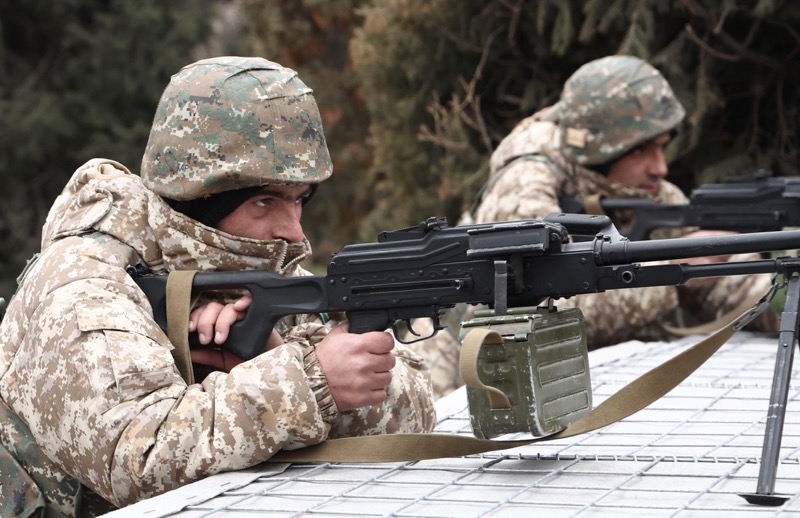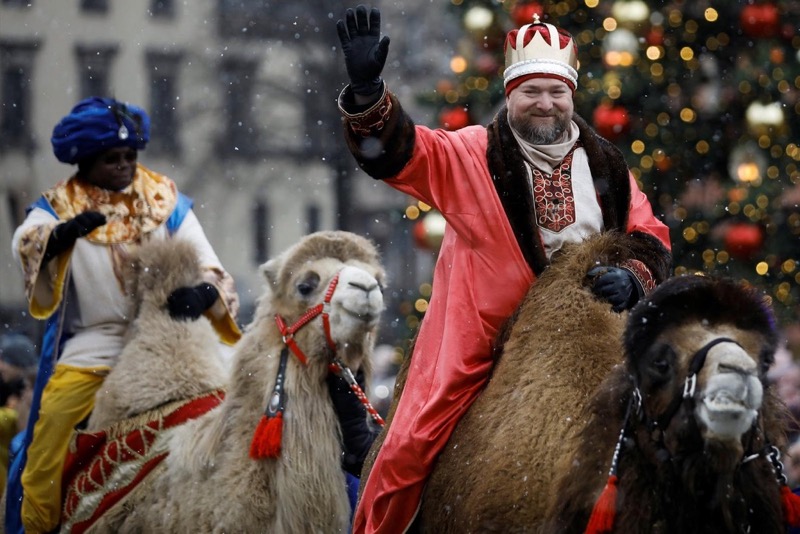Commemoration of the Coptic martyrs of Libya will take place over the first two weeks of February, held at the shrine built to honour them in the town of al Awar, Minya province. Anba Pavnotios, Coptic Orthodox Bishop of Samalut, has announced that events for the seventh anniversary of their martyrdom will consist of liturgical celebrations, conferences, and visits to the sanctuary-museum. Twenty Egyptian Copts and their Ghanaian co-worker were kidnapped in Libya in January 2015. The video of their beheading was posted on jihadist websites on 15 February. Soon afterwards, Coptic Orthodox Patriarch Tawadros II had their 21 names inscribed in the Synaxarium, the book of martyrs of the Coptic Church.
As the 2022 election period kicked off in the Philippines last Sunday, with four months before polling to elect a successor to President Rodrigo Duterte, an archbishop lauded more than 12,000 doctors and medics for supporting the candidacy of Vice-President Leonor "Leni" Robredo, a liberal progressive. Archbishop Socrates Villegas of Lingayen praised them for not only fighting the pandemic but for “standing up for what is right and you give us hope.” Another presidential candidate is Ferdinand Marcos Jr, son of President Ferdinand Marcos who was toppled during the 1986 People Power Revolution.
“Three Kings” processions were held at more than 600 locations across Poland, including the capital Warsaw, on 6 January. The Epiphany has been a public holiday in the country since 2011. Pope Francis commended the “initiatives of evangelisation that stem from the traditions of Epiphany.” However, last week, Archbishop Wojciech Polak of Gniezno and Primate of Poland lamented a “devastating” decline in religious practice among young people in Poland, blaming the hierarchy’s failure to deal with sex abuse by clergy.
Pakistani Christians have been commemorating former Punjab governor Salman Taseer, who was assassinated on 4 January 11 years ago, after criticising Pakistan's blasphemy laws. He had defended Asia Bibi, the Catholic woman later acquitted of blasphemy after spending eight years on death row. The chairman of Taseer’s Pakistan People’s Party, Bilawal Bhutto Zardari, issued a statement, saying, “the day of martyrdom of Taseer reminds us that we have to save Pakistan from the fire of extremism and terrorism.”
A new statue of Christ being built in Brazil will be larger than the iconic Christ the Redeemer statue of Rio de Janeiro. It will stand on a hill near Encantado in Rio Grande do Sul State, constructed by the local Friends of Christ Association. Made of steel and concrete, it will be 141 feet high, 16 feet taller than Rio's statue. Meanwhile, Archbishop Walmor Oliveira de Azevedo of Belo Horizonte and president of the Bishops’ Conference talked of a different kind of construction in his New Year message. He said, "it is time to rebuild Brazil, it is time to rebuild society in justice and peace" condemning “indifference towards the poorest.”
Religious leaders in the northern province of Cabo Delgado in Mozambique have issued a joint statement warning that four years of conflict is causing profound economic and social crises. The province is one of the poorest in the country despite being rich in gas and other natural resources. Christian and Muslim leaders deplored the exploitation of religion to justify political violence and terrorism, amidst an Islamist insurgency which has displaced 800,000 people, nearly half the province’s population. “We condemn acts and persons who distort religious teachings to justify any kind of violence,” the leaders said.
The archdiocese of Jakarta, Indonesia, is implementing a new four-year online youth programme in its 67 parishes. The idea was developed by the archdiocese's youth group, Campus Fidei. Cardinal Ignatius Suharyo, Archbishop of Jakarta, said the emphasis would be to explore Catholic Social Teaching and, “restore value to human dignity through concrete actions upon which we then reflect via social media.”
The recent resignation of the Sudanese Prime Minister Abdalla Hamdok, who declared that he was unable to return power to the civilian population after October’s military coup, has prompted the head of Sudan’s Catholic bishops to call for peace and dialogue. The military had permitted Hamdok to take back his position on 21 November and share power, but now the military is fully in control. The former prime minister said his country is at a “dangerous crossroads threatening its very survival.” As thousands protested against military rule the past two weekends, in the capital Khartoum and in nearby Omdurman, Bishop Yunan Tombe Trille Kuku of El Obeid, President of the Catholic Bishops' Conference of Sudan, said "the security of every Sudanese brother and sisters, is the security of Sudan", and called for “ a new Sudan in which everyone is equal."
India’s Home Ministry has restored the Foreign Contribution Regulation Act (FCRA) registration of the Missionaries of Charity (MoC), days after revoking it following some "adverse inputs". A home ministry official said that with the restoration of the FCRA licence, the Kolkata-based organisation will be able to receive foreign funding and can also spend the money lying in its bank accounts. Speaking anonymously a MoC official said “we are happy with the development”.
Ethiopia’s Catholic Cardinal, Berhaneyesus Souraphiel has called on Ethiopians and Christians in particular to uphold peace and shun hatred. In his message for Christmas, marked in the country on 7 January, Cardinal Souraphiel said “even though peace is being violated and war is being waged in our country [we must embrace] humility, gentleness and patience.” The ongoing conflict in Tigray has claimed thousand of lives and displaced many more thousands.
A second diocese in Sicily announced a temporary ban on the naming of godparents for baptisms and confirmations. In a decree that went into effect on 1 January Bishop Domenico Mogavero of Mazara del Vallo said the ban would be on an experimental basis until the end of 2024. “The office of godparent in the two sacraments of baptism and confirmation has lost its original meaning, limiting itself to a purely formal liturgical presence that is not followed by the accompaniment of the baptised and the confirmed on the path of human and spiritual growth,” the bishop wrote. Those being baptised, confirmed or welcomed into the church as adults will be joined by their parents or the person who prepared them for the sacrament. In October, the Diocese of Catania introduced a similar three-year ban due to the use of godparents as means to strengthen family bonds, particularly within local Mafia families.
Nigeria’s State Security Service has summoned Bishop Matthew Kukah of Sokoto for questioning, after the prominent government critic again criticised President Muhammadu Buhari for failing to curb nationwide insecurity, writes Ellen Teague. At Christmas, Bishop Kukah, asked, “does the President of Nigeria not owe us an explanation and answers as to when the abductions, kidnappings, brutality, senseless, and endless massacres of our citizens will end?”
The question was pertinent last week when more than 200 people were killed by motorcycle-riding gunmen in North-Western Zamfara state. Around 10,000 were displaced from their villages, following military air raids on the gunmen’s hideouts the previous week. Buhari described the attacks as "an act of desperation by mass murderers."



 Loading ...
Loading ...